
1) Wilhelm Olbers (1758-1840) AstronomicDoc and Delegate of the city of Bremen
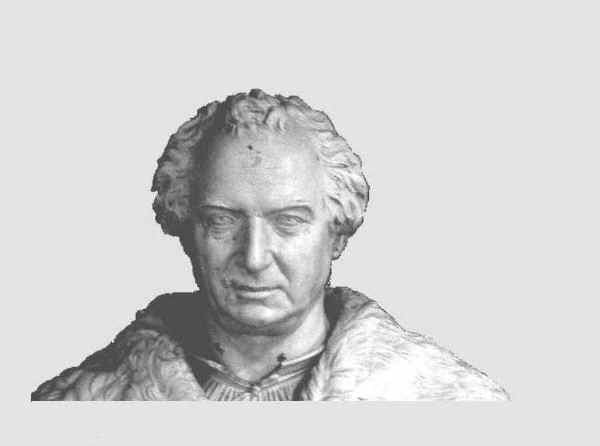
He observed the way of comets and
discovered the planetoids Pallas and Vesta and became
world famous by his Olber-paradoxon.
See much more information at the homepage
of the Bremen Olbers Society:
http://www.fbw.hs-bremen.de/~olbers
So
he is AstronomicDoc and PoliticDoc!
2) Samuel Heinrich Schwabe is also AstronomyDoc
Germany, Dessau, pharmacist,
astronomy,
botanic,
meteorologist
See his own presentation
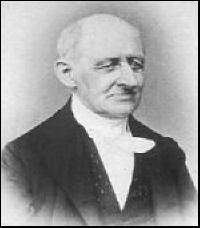 |
Samuel Heinrich Schwabe was born as the eldest of 11 children of a
doctors family in Dessau/Germany. His father was doctor of the Duke, his
mother daughter of the local pharmacist. At age 7 he came to school (Dessauer Hauptschule)
where he got to know philantrophism and humanism, being supported by Leopold III. Friedrich Franz, Fürst von Anhalt-Dessau.
From 1809 he studied at the "königlich-preußischen Universität in Berlin".
After his father died he returned to Dessau and continued the
pharmacy of his father to feed the family. |
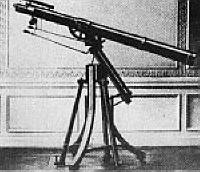 |
After some heavy times Schwabe followed his interest in botanic and
astronomic knowledge more intensively. In 1825 he won his first
telescope in a lottery, began to document some observations and in the
same year got a better telescope from the well-known physicist Joseph von Frauenhofer.
In
1829 he sold the house he inherited including the pharmacy and bought
the corner house in Johannisstraße 18, which is still the
www.SchwabeHaus.de today.From
the observatory under the roof he made intensive astronomical
observations for over 43 years and documented them precisely. AMong
other things he discovered the periodicity of the sun eruptions (every
11 years) and is well-known among astonomists world-wide with this.
He published his findings in the "Astronomical News" so Alexander von
Humboldt visited his observatory. Through Humwith whom he had a boldt
Schwabe became teacher of the dukes children, where he met his wife whom
he marrie din 1841. Her brother brought him together with Professor Encke (direktor
of the Berlin Observatory and well-known astronome) with whom he
had an intensive dialogue over a long time.
|
See article in Deutsches Ärzteblatt:
http://www.aerzteblatt.de/v4/archiv/artikel.asp?src=suche&id=52322
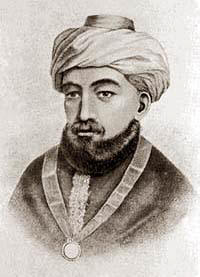
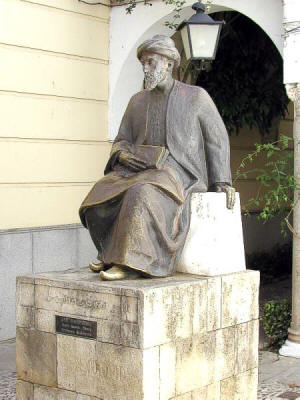
Moses Maimonides (
March
30,
1135
Córdoba, Spain –
December 13,
1204
Fostat,
Egypt)
was a
Jewish
rabbi,
physician, and
philosopher in
Andalusia,
Morocco
and
Egypt
during the
Middle Ages. He was one of the various medieval
Jewish
philosophers who also influenced the non-Jewish world. Although his
copious works on
Jewish
law and ethics were initially met with opposition during his lifetime,
he was posthumously acknowledged to be one of the foremost rabbinical
arbiters
and philosophers in
Jewish
history. Today, his works and his views are considered a cornerstone of
Jewish
thought and study.
Astrology (contains a lot of
Astronomy...)
Maimonides answered an inquiry concerning
astrology, addressed to him from
Marseille. He responded that man should believe only what
can be supported either by rational proof, by the evidence of
the senses, or by trustworthy authority. He affirms that he had
studied astrology, and that it does not deserve to be described
as a science. The supposition that the fate of a man could be
dependent upon the constellations is ridiculed by him; he argues
that such a theory would rob life of purpose, and would make man
a slave of destiny. (See also
fatalism,
predestination.)
http://en.wikipedia.org/wiki/Maimonides
4) Nikolaus Kopernikus is AstronomyDoc
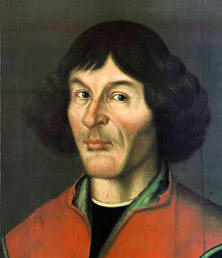
.....In 1501 Copernicus returned to Frombork. As soon as he
arrived, he obtained permission to complete his studies in
Padua, where he
studied
medicine (with Guarico and
Fracastoro), and at
Ferrara,
where in 1503 he received his doctorate in
canon law.
One of the topics Copernicus must have studied at that time was
astrology,
since it was then considered to be an important part of a medical education.[5]
However, unlike most other prominent renaissance astronomers, he appears to have
never practiced it, or expressed any subsequent interest in it.[6]
It has also been surmised that it was in Padua that he encountered passages from
Cicero and
Plato about
opinions of the ancients on the movement of the Earth, and formed the first
intuition of his own future theory. In 1504 Copernicus began collecting
observations and ideas pertinent to his theory. .......
See more details at
http://en.wikipedia.org/wiki/Nicolaus_Copernicus
5) Joachim Gardemann is AstronomyDoc and ArtDoc
Joachim Gardemann, born 1955, is a
medical doctor (1983), consultant in paediatrics (1989) and public health
medicine (1993) and holds a master´s degree in public health (1994).
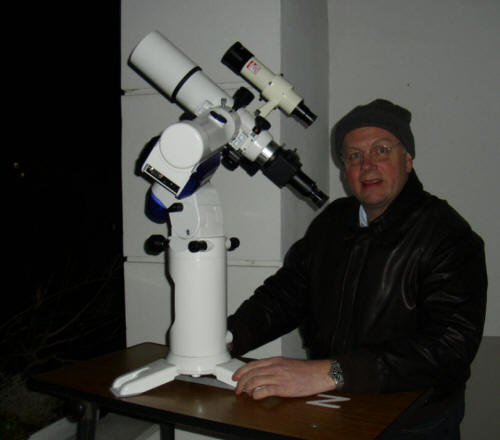
Joachim Gardemann is a passionate hobby
astronomer and a watercolour illustrator in his international Red Cross
missions.
See more in his
presentation







